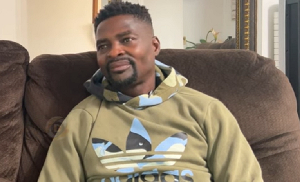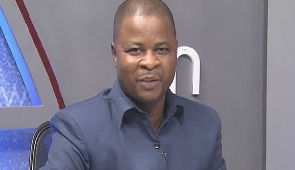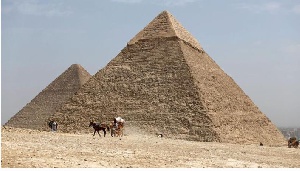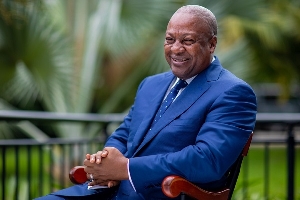- Home - News
- TWI News | TV
- Polls
- Year In Review
- News Archive
- Crime & Punishment
- Politics
- Regional
- Editorial
- Health
- Ghanaians Abroad
- Tabloid
- Africa
- Religion
- Election 2020
- Coronavirus
- News Videos | TV
- Photo Archives
- News Headlines
- Press Release
General News of Wednesday, 22 May 2002
Source: --
Don't personalise offences of the past - Kwesi Pratt
Accra (Greater Accra) 18 May 2002- Mr. Kwesi Pratt Junior, editor of The Insight newspaper and a member of the Socialist Forum of Ghana has, appealed to Ghanaians to exercise the greatest restraint in the handling of extra judicial abuses of post independent governments of Ghana.
He contended that none of those governments could hold its chest out boldly and say it had always been perfect and asked Ghanaians not to personalise offences of the past but explore ways of peace and work to move the country forward economically.
"All of us have done things where we went wrong, but some people are filled with extreme passion and want to fight at the least opportunity. This will not move our society one inch forward. This can only move us back", he told the first in a series of public fora of the Socialist Forum of Ghana (SFG).
The forum diagnosed the Structural Adjustment Programme (SAP) and sought to offer alternatives to the programme, which speakers said has failed to address the economic problems of the country for the 20 years that it has operated. It was organised by SFG and the Insight on Friday in Accra, and was chaired by Professor Ama Ata Aidoo, a renowned writer and a former Secretary of Education in the erstwhile regime of the Provisional National Defence Council (PNDC).
The SFG, which started about three years ago, is a new club of a cross section of local political parties and youth organisations that study and discuss local topical issues and offer suggestions and alternatives to national policies and programmes.
Speakers at the forum, who included Professor Akilagpa Sawyer, former Vice Chancellor of the University of Ghana, Dr Yao Graham coordinator of the Third World Network Africa, a research and advocacy organisation based in Accra, and Professor Ansa Asamoa, a noted socialist and a former lecturer at the University of Cape Coast, whose paper was presented on his behalf by Mr Pratt.
Mr Pratt's caution to aggrieved persons of former governments to exercise utmost restraint came when passions went high and resulted in an open confrontation between Mr Enoch Teye Mensah and Alhaji Huudu Yahaya, two of the six vice-chairmen of the National Democratic Congress NDC, on one hand and Mr James William Owu, who described himself as a nationalist on the other hand.
Mr Owu in a question challenged the constitutionality of coup d'etats and asked Ghanaian intellectuals why they failed to reject military adventurism. In the process Mr. Owu made a remark about former President Rawlings, which many people in the audience considered unsavoury and shouted on him to put hold on his question and sit down, but Mr Owu would not budge.
This threw the forum into more than a 20-minute hold-up which resulted in a near exchange of words between Mr Mensah and Alhaji Yahaya. Mr Pratt said the uproar was an indication of the polarisation of the Ghanaian society and the tendency to confront personalities rather than issues and added that such a situation would never promote any healthy development in the country. All the speakers had earlier noted that the structural anomalies inherited from the colonial era in the Ghanaian economy and stressed the need to chart a new path for the economy.
Professor Sawyer called for a holistic and honest diagnosis of the Ghanaian economic situation and argued it would be na?ve to think that foreign aid and direct investment would transform Ghana's economy for the better. ''It would only ease the pain, but cannot transform the economy. Foreign investment is not in the interest of global capital. Foreign investments are only for the shareholders benefits. If they transform the economy at all they are sheer coincidental'', he said.
He asked African governments to commit themselves to domestic programs as parts of the economic healing process and work together at the sub-regional level to push forward their development. Professor Ansa Asamoa said the Ghanaian economy has a large very large peasant sector and is characterised by light industrialisation in the informal sector without a synchronised industrialisation of agriculture. He said there was a backward extractive industrial sector as the economy still produces largely primary goods as exports.
He called for the industrialisation of agriculture, development of light industry, transformation of the extractive industry by processing locally primary products to accelerate the development of the productive forces in the country.










